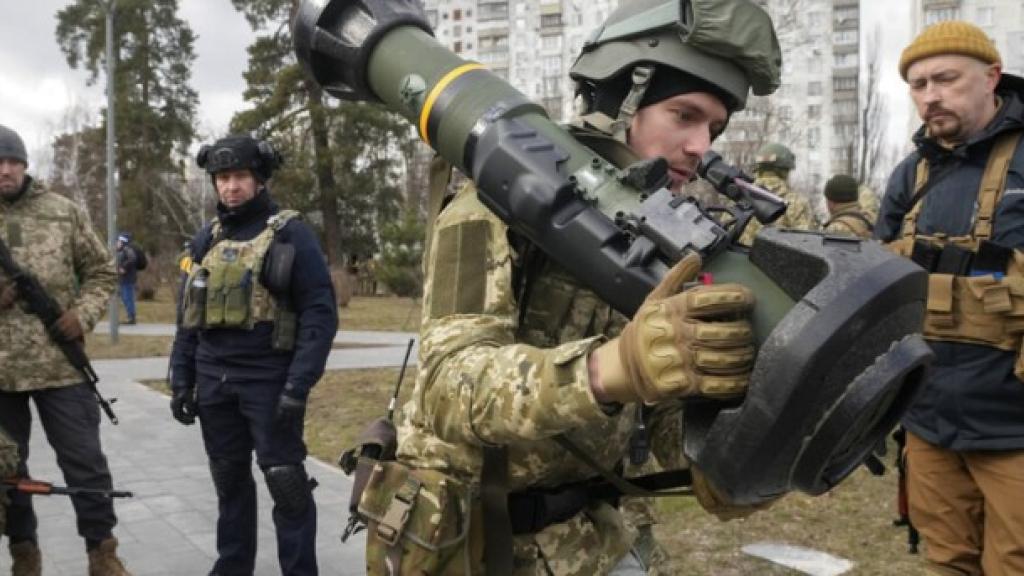Consistent anti-imperialism and the Ukraine war

First published at Labour Hub.
The New Cold War that has been going on since the turn of the century does not counterpoise antagonistic socioeconomic and political systems like the Cold War did in the second half of the 20th century. Claims to the contrary are but manifestations of partisanship in the ongoing global confrontation.
Thus, supporters of the geostrategic West and of NATO claim that it is a conflict between democracy and authoritarianism, turning a blind eye to the fact that several of the West’s protégés and allies are authoritarian regimes and that the far right has been progressing at the very heart of the Western alliance, including in the United States itself where the previous president belonged to the far right.
On the opposite side, supporters of Russia in the Ukraine war claim that it is fighting against Western imperialist encroachments, a claim that presupposes that Russia has a sacred imperialist right over the nations that it has historically subjugated, whether under Tsarism or under Stalinism.
The truth is that the New Cold War bears more resemblance to the period of tensions and global rivalry that preceded the First World War and pitted equally imperialist powers against one another. Washington was perfectly happy to foster capitalism in each of Russia and China and accommodate authoritarianism, nay encourage it as it did with Boris Yeltsin in Russia, as long as it served its interests.
It turned against these states not when they became more authoritarian but when they refused to remain confined to a subordinate status. Until a few years ago, Vladimir Putin was expressing a wish to join NATO. He turned into a fierce opponent of the Alliance only when he realised that its eastward expansion, while keeping its doors firmly closed in the face of Russia, was built on the postulate that the latter is the West’s atavistic potential enemy.
In the same way that the only true anti-imperialism during the First World War was that which equally rejected both imperialist sides, the only consistent anti-imperialism nowadays consists in equally rejecting both sides of the New Cold War. However, this does not in the least imply a neutral attitude towards Russia’s invasion of Ukraine: no anti-imperialist can remain neutral in a situation where a subaltern nation is attacked by an imperialist power. Solidarity with the victims of imperialist aggressions is the elementary duty of anti-imperialists.
What equal opposition to both sides of the New Cold War implies is that solidarity with Ukraine must remain confined to the limits of its right to self-defence. Ukraine has the right to fight to repel the ongoing invasion of its territory and therefore the right to get appropriate defensive means. The most inconsistent attitude towards the ongoing war is indeed that which pretends to support Ukraine’s right to self-defence but opposes its right to get the means that are indispensable for that purpose.
But anti-imperialist solidarity with Ukraine also means opposition to the transformation of Ukraine’s resistance to the aggression into a drive to inflict a strategic defeat on Russian imperialism on behalf of Western imperialism. This is not in the best interest of the people of Ukraine as it would take a huge toll on them, far beyond what they have already suffered. Anti-imperialist solidarity with Ukraine must therefore oppose escalation of the present war from one of self-defence into a strategic onslaught on Russia, requiring the delivery of jet fighters and long-range missiles to Ukraine. The Biden administration has thus far refused to cross that line, in spite of the pressure of Ukrainian nationalists and Western warmongers. It is to be hoped that it will stick to that self-limitation.
That said, there can be no just and peaceful settlement of the ongoing war without a return to the United Nations and its principles. The twelve-point plan announced by China on 24th February reaffirms the UN Charter’s principle of the “sovereignty, independence and territorial integrity of all countries”. Instead of grasping the hand thus offered by Beijing in order to jointly work towards a UN-based settlement, Washington has right away dismissed the Chinese position, in accordance with the heightened anti-Chinese stance that it has adopted since Donald Trump’s presidency. Thus, it becomes clear that the Biden administration – even though it has not wanted until now to use Ukraine for a strategic offensive on Russia – is content with using it for a war of attrition with its Russian rival.
Consistent anti-imperialists must combine their support of Ukraine’s right to self-defence with support for a UN-based peaceful settlement of the ongoing war. Those who call for peace while opposing Ukraine’s right to get what it needs for its defence are in fact advocating its capitulation. History abundantly shows that ‘peace’ predicated on one side’s military superiority is no more than a temporary lull in a protracted hostility generative of conflict.
Those who support the long-term continuation of war for maximalist objectives, including Ukraine’s military recovery of Crimea, are in fact supporting a doomsday scenario in the name of right. Consistent anti-imperialists must remain equally opposed to both stances.
Gilbert Achcar’s new book is The New Cold War: The United States, Russia and China, from Kosovo to Ukraine.